I bought this item for 5 bucks at an live action. I figured the transformer and caps would be worth 5 if it didn't work. Well I figured maybe I can sell it. It seems they still sell for 500-700 bucks refreshed. Maybe I can get a couple hundred. Either way I am happy to just tear down and learn and keep parts if all else fails.
So I am after a few things.
1) I want to know if my Fluke 83-III is good enough to test this equipment.
2) I would like to know what groups of various component systems are called on this thing (power supply, capacitor bank ext.)
3) One of the MOSFET's have some weird colors on the solder and I was wondering if it looks like a problem to you.
4) Maybe we can walk through and trouble shoot this for fun. If it takes 6 months it is worth it to me.
Tests that I did....
1) Set the machine on various voltages... such as 100V, 500V and 1kV.
2) Used fluke and set on Max mode so it shows the max voltage.
3) The most voltage I got was 340V on the LV mode (500V setting on machine)
4) On the HV section of the machine I am not sure I got anything. One time it said OL on the Fluke but I couldn't get it to repeat.
So as for my question 1 about the Fluke. Is this Fluke good enough to catch a quick voltage such as one like this machine does? Is there another setting I should know about?
Ok and now for the pictures.
Front Panel
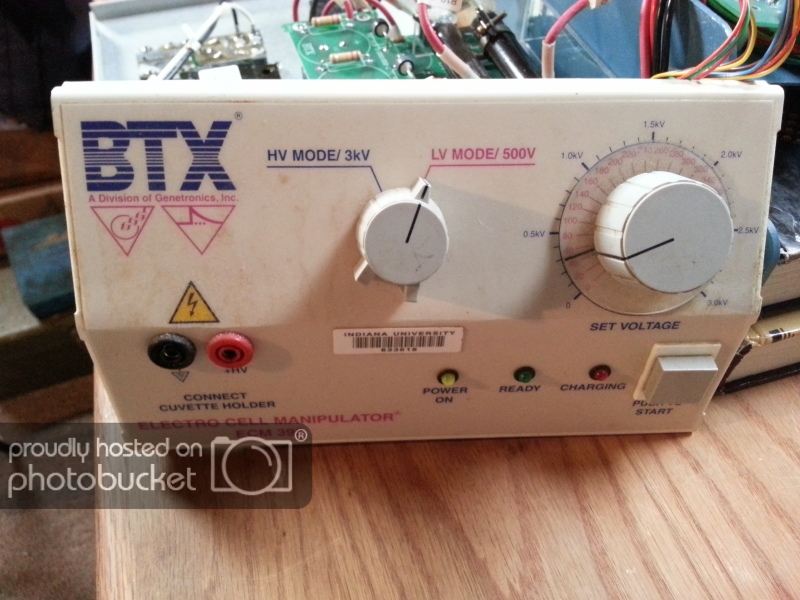
Mainboard
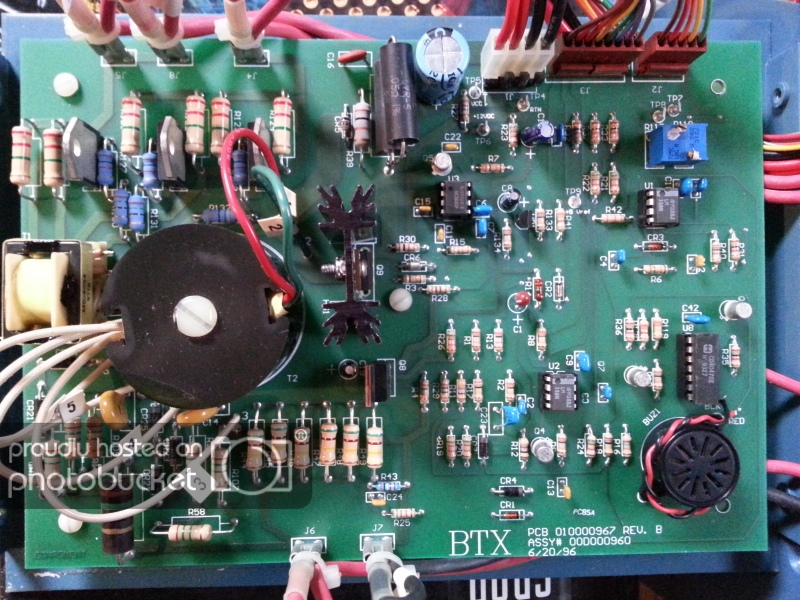
Capacitor Bank
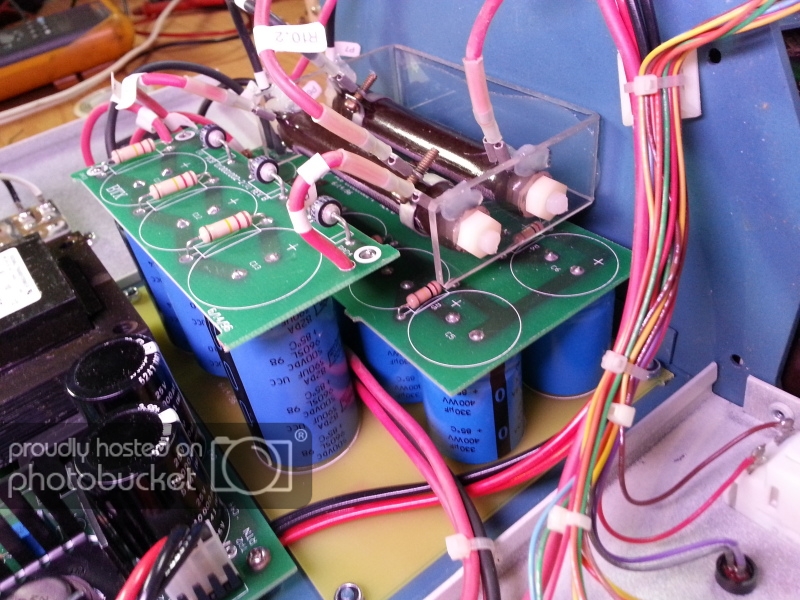
Power Supply
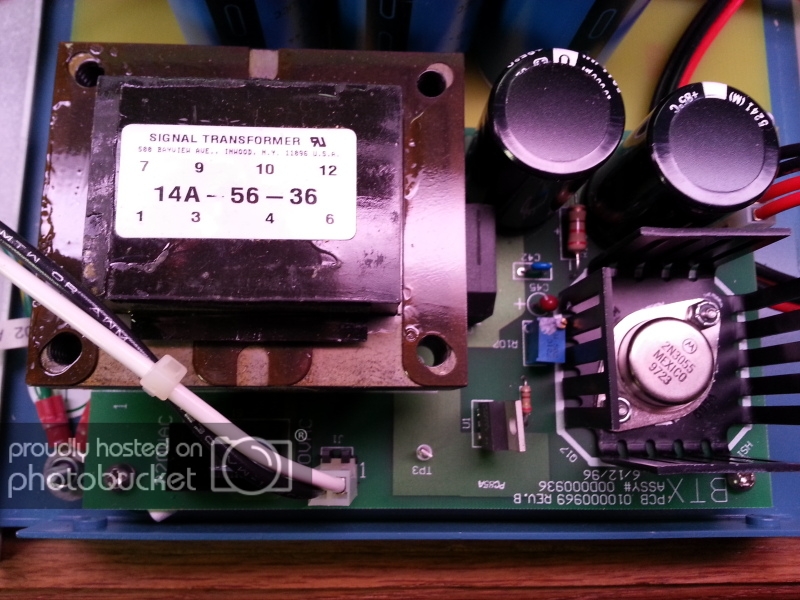
N-Channel MOSFET
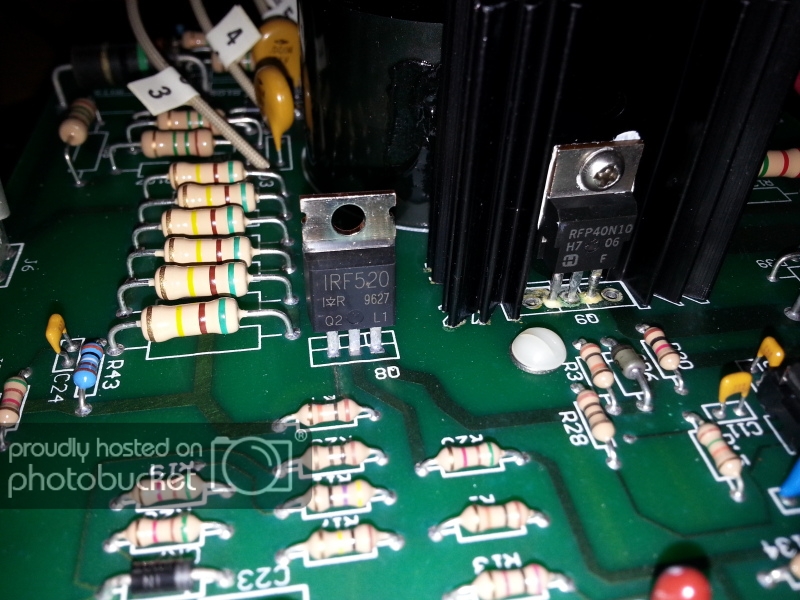
So I am after a few things.
1) I want to know if my Fluke 83-III is good enough to test this equipment.
2) I would like to know what groups of various component systems are called on this thing (power supply, capacitor bank ext.)
3) One of the MOSFET's have some weird colors on the solder and I was wondering if it looks like a problem to you.
4) Maybe we can walk through and trouble shoot this for fun. If it takes 6 months it is worth it to me.
Tests that I did....
1) Set the machine on various voltages... such as 100V, 500V and 1kV.
2) Used fluke and set on Max mode so it shows the max voltage.
3) The most voltage I got was 340V on the LV mode (500V setting on machine)
4) On the HV section of the machine I am not sure I got anything. One time it said OL on the Fluke but I couldn't get it to repeat.
So as for my question 1 about the Fluke. Is this Fluke good enough to catch a quick voltage such as one like this machine does? Is there another setting I should know about?
Ok and now for the pictures.
Front Panel

Mainboard

Capacitor Bank

Power Supply

N-Channel MOSFET

